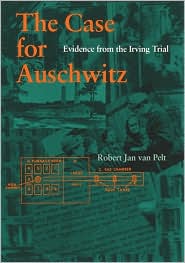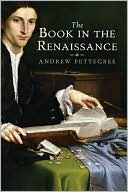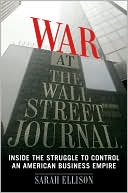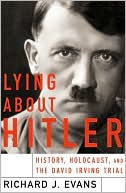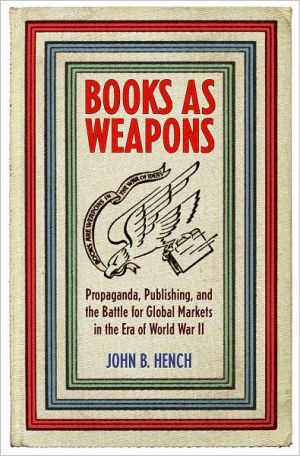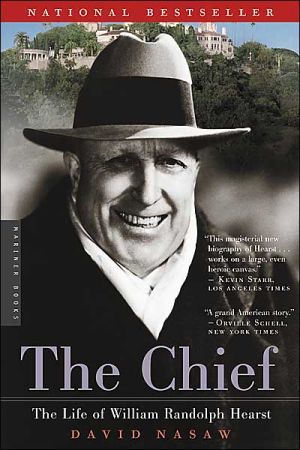The Case for Auschwitz: Evidence from the Irving Trial
"The Irving case has done for the new century what the Nuremberg tribunals or the Eichmann trial did for earlier generations." —The Daily Telegraph\ From January to April 2000 a high-profile libel case brought by the British historian David Irving against Penguin Books and Deborah Lipstadt, charging that Lipstadt’s book, Denying the Holocaust (1993), falsely labeled him a Holocaust denier, was tried in the British High Court. The question about the evidence for Auschwitz as a death camp...
Search in google:
"The Irving case has done for the new century what the Nuremberg tribunals or the Eichmann trial did for earlier generations." — The Daily TelegraphFrom January to April 2000 a high-profile libel case brought by the British historian David Irving against Penguin Books and Deborah Lipstadt, charging that Lipstadt's book, Denying the Holocaust (1993), falsely labeled him a Holocaust denier, was tried in the British High Court. The question about the evidence for Auschwitz as a death camp played a central role in these proceedings. Irving had based his alleged denial of the Holocaust in part on a 1988 report by an American execution specialist, Fred Leuchter, which claimed that there was no evidence for homicidal gas chambers in Auschwitz. In connection with their defense, Penguin and Lipstadt engaged architectural historian Robert Jan van Pelt to prepare for the court an expert report presenting the evidence for our knowledge that Auschwitz had been an extermination camp where up to one million Jews were killed, mainly in gas chambers.Employing painstaking historical scholarship, van Pelt submitted an exhaustive forensic report, which he successfully defended in cross-examination in court. In his verdict in favor of the defendants, Mr. Justice Charles Grey concluded that "no objective, fair-minded historian would have serious cause to doubt that there were gas chambers at Auschwitz and that they were operated on a substantial scale to kill hundreds of thousands of Jews."The Case for Auschwitz analyzes why Auschwitz has become central to Holocaust denial and how it became a focus in the Irving-Lipstadt trial. It presents the compelling evidence contained in the original expert report and details the way this evidence played out at the trial. Unique in its comprehensive assessment of the historical evidence for Auschwitz and devastating in its demolition of the arguments of Holocaust deniers against Auschwitz, van Pelt's book is essential reading for anyone interested in the history of the Holocaust and for those who seek to combat Holocaust denial. Publishers Weekly "More people died in the back seat of Edward Kennedy's car in Chappaquiddick than ever died in a gas chamber in Auschwitz." These are the words of David Irving, who made history himself when he lost a British libel trial against Deborah Lipstadt for labeling him a Holocaust revisionist in her 1993 book Denying the Holocaust: The Growing Assault on Truth and Memory. This dense, fact-filled but always compelling volume not only details Irving's libel suit (van Pelt testified against him at the trial), but collects and documents the plethora of historical and scientific evidence that proves he was wrong. While Irving's claim astonishing for a historian who had received praise for works such as The Destruction of Dresden (1963) and Hitler's War (1977) is overtly ludicrous, the power of this book resides in van Pelt's broad analysis of Holocaust revisionism or "negationism," as van Pelt more accurately labels it and its myriad manifestations. He discusses Irving's gradual emergence from respected historian to full-fledged negationist; the career of French professor Dr. Robert Faurisson, a "hard-core negationist" who managed to elicit intellectuals Noam Chomsky and Jean-Fran ois Lyotard to defend his "academic freedom"; and the "scientific" testimony of Fred Leuchter (the subject of Errol Morris's 1999 film, Mr. Death). The bulk of the book is the methodical and chilling presentation of materials presented at the trial first-person accounts, photos, historical documents, diagrams, scientific evidence, testimony of former SS guards interwoven with Irving's testimony and defense. Van Pelt (Auschwitz: 1270 to the Present) has arranged an enormous amount of complex material succinctly and to greateffect. Read as a whole, the book is a stunning courtroom drama and a vital document of historical evidence. This is an important addition to Holocaust literature and 20th-century history. 130 b&w illus. (Jan.) Copyright 2001 Cahners Business Information.
Preface and Acknowledgments1The Negationists' Challenge to Auschwitz12Marshaling the Evidence for Auschwitz663Intentional Evidence1374Confessions and Trials2245"Witnesses Despite Themselves"2936Auschwitz at the Irving Trial399Epilogue494Abbreviations507Notes509Bibliography539Index553
\ Publishers Weekly"More people died in the back seat of Edward Kennedy's car in Chappaquiddick than ever died in a gas chamber in Auschwitz." These are the words of David Irving, who made history himself when he lost a British libel trial against Deborah Lipstadt for labeling him a Holocaust revisionist in her 1993 book Denying the Holocaust: The Growing Assault on Truth and Memory. This dense, fact-filled but always compelling volume not only details Irving's libel suit (van Pelt testified against him at the trial), but collects and documents the plethora of historical and scientific evidence that proves he was wrong. While Irving's claim astonishing for a historian who had received praise for works such as The Destruction of Dresden (1963) and Hitler's War (1977) is overtly ludicrous, the power of this book resides in van Pelt's broad analysis of Holocaust revisionism or "negationism," as van Pelt more accurately labels it and its myriad manifestations. He discusses Irving's gradual emergence from respected historian to full-fledged negationist; the career of French professor Dr. Robert Faurisson, a "hard-core negationist" who managed to elicit intellectuals Noam Chomsky and Jean-Fran ois Lyotard to defend his "academic freedom"; and the "scientific" testimony of Fred Leuchter (the subject of Errol Morris's 1999 film, Mr. Death). The bulk of the book is the methodical and chilling presentation of materials presented at the trial first-person accounts, photos, historical documents, diagrams, scientific evidence, testimony of former SS guards interwoven with Irving's testimony and defense. Van Pelt (Auschwitz: 1270 to the Present) has arranged an enormous amount of complex material succinctly and to greateffect. Read as a whole, the book is a stunning courtroom drama and a vital document of historical evidence. This is an important addition to Holocaust literature and 20th-century history. 130 b&w illus. (Jan.) Copyright 2001 Cahners Business Information.\ \
